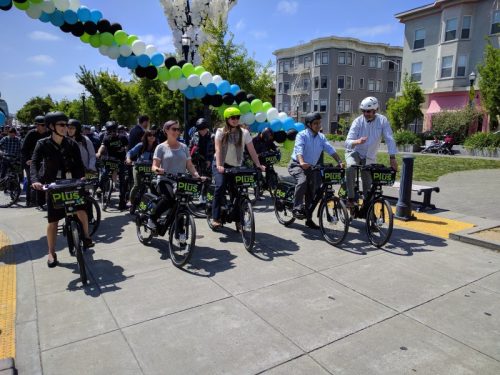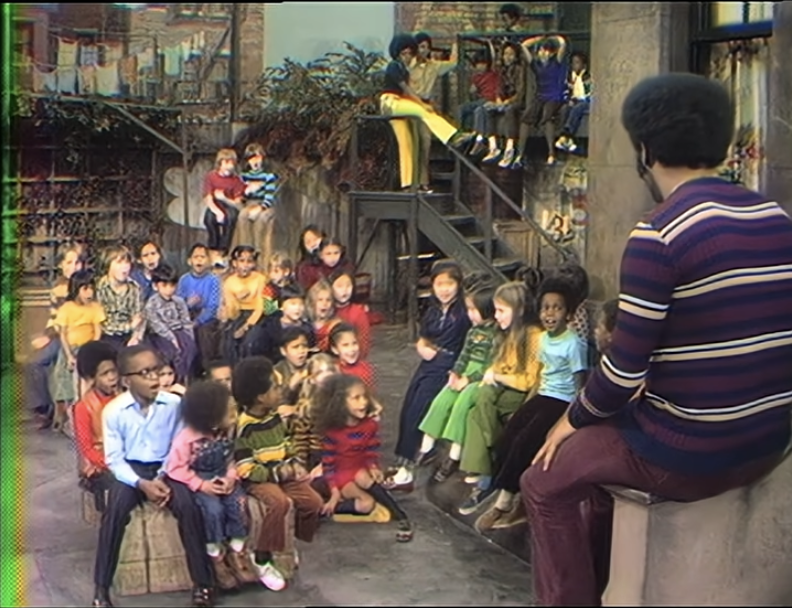Editor's Note: This (Wednesday) afternoon, the California Senate Insurance Committee will consider a bill whose author, Assemblymember Reginald Jones-Sawyer (D-Los Angeles), claims its aim is to protect pedestrians - but which would instead kill bike- and scooter-share systems in California.
In the name of safety, A.B. 371 would require burdensome and outsized insurance coverage for bike- and scooter-share companies - far beyond what is currently required for motor vehicles. This is supposedly to help people who may be injured by people using the devices recover damages, but it is not at all the same thing as improving safety.
The bill has been sitting in the insurance committee for the last year, and is being revived now to get it passed before the end of this two-year session. The committee could vote to pass it, or kill it, today.
Below is a letter signed by a coalition of twenty organizations that explains the deep flaws in A.B. 371, and explains why it would fail to achieve what it claims to.
To watch today's hearing, tune in here once the hearing begins at 1:30 (or after; sometimes committee hearings start late). Scroll down to find the Insurance Committee listing.
Dear Senator Rubio:
The California Bicycle Coalition, and our partners, oppose A.B. 371. The bill’s effects do not match its intentions to protect pedestrians. Instead, it will damage the potential of shared bikes and scooters to provide a safe, equitable, and accessible transportation option for California’s disadvantaged communities. It will increase driving and all of the harms associated with such an increase: increased injuries and fatalities from traffic crashes, reduced economic security for low-income people, and worse pollution in already burdened neighborhoods.
The shared bike and scooters systems of today do not cause the problems that they caused when they were first deployed a few years ago. Their users too often left them abandoned in the pedestrian path of travel, posing a hazard to people walking, which is especially problematic for people with vision impairments. Sometimes their users, especially when on a scooter, operate them on the sidewalk where they could crash into a pedestrian. As central to our advocacy for equitable and inclusive communities, CalBike recognizes that sidewalks are the domain of pedestrians and that people deserve to walk (or push their wheelchair, etc.) without negotiating that space with others on fast, wheeled devices.
The problem of bikes and scooters improperly operated on the sidewalk is mostly solved in modern shared micromobility systems. Thanks to state law allowing cities to regulate these devices, and to cities whose permits recognize these problems, operators can now require the user to park their device to a pole, safely and out of the way, before they may finish their trip. Scooters now come equipped with the sidewalk detection ability which can prevent operation on the sidewalk.
State law could amplify these local initiatives by mandating such practices where appropriate, rather than leaving it up to the cities, and advance the cause of safer sidewalks. A.B. 371 does not do that. Instead, it burdens the entire industry of shared micromobilty with an insurance requirement that will drastically increase the cost and make it nearly impossible to expand the service to people who need it most. That burden will do more harm to Californians than the benefit of a few injury settlements. The harm is immense.
Shared bikes and scooters, when combined with public transit, are the future of equitable mobility. Where Californians must currently rely on a car for convenient door-to-door transportation, a shared bike can close the gap between a user’s destination and the nearest reasonably convenient transit station. Or it can take you directly to your destination for a fraction of the cost of an automobile. It is imperative for equity and climate and safety that we provide a public transit system for Californians that is competitive with the automobile. Shared bikes and scooters are by far the most cost-effective way to do that. A.B. 371 will drive up the costs of shared micromobility and make it much harder to provide the equitable transportation system that Californians deserve.
It is important to note that it drives up the cost of bicycling to the same degree that it drives up the cost of using scooters, despite the vastly different risk and benefit profiles of scooters and bikes. Even if the committee decides that some insurance for some devices is good policy, bikes should not be included in this legislation.
Bikes are superior to scooters in several ways. Their larger wheels make them much safer for the user. With greater carrying capacity, they are much more useful. Data from shared micromobility companies indicate that they are much less likely to be ridden on the sidewalk. They are much less likely to be badly parked, although, as noted, thanks to permit regulations, scooter users are adopting the long-standing custom of bicycle riders of parking their bikes next to parking meters or on a bike rack outside of the pedestrian path of travel.
Crucially, bike riders incur health benefits from riding. This is just as true of shared e-bikes as it is for regular bikes, because shared e-bikes can be regulated to limit their top motor-assisted speed and to ensure that at least some effort is required to pedal the device. Increasing bicycling will improve public health by reducing incidence of cardiovascular disease, cancer, and depression, and reduce health care costs. It’s a consideration of extreme importance where the government has a greater responsibility for health care and therefore a greater concern about health care costs, and should be a vital concern to legislators with aspirations to improve California’s health care system and reduce health care insurance costs to taxpayers and businesses.
A.B. 371 has even more transportation and health policy questions. Why are mopeds not included? California law allows for shared mobility systems using mopeds to be offered to users without requiring motorcycle licenses that are otherwise required for personally used mopeds. By exempting mopeds from this insurance requirement but including bikes, A.B. 371 provides a perverse incentive to rely on mopeds for shared mobility, increasing the risk of severe injury to riders and pedestrians and decreasing opportunities to improve public health.
Finally, A.B. 371 misses an opportunity to promote safe, equitable shared mobility by not imposing a cap on allowable insurance requirements by government agencies. If $10,000 is the right amount, it should be legislated as such and not treated merely as a floor. Government agencies should not be allowed to engage in “transportation redlining” by effectively prohibiting shared micromobility in their communities, which they can do by imposing prohibitively high insurance requirements.
We are witnessing this impact right now with the Clean Mobility Options program approved by the legislature to improve transportation equity. The Air Resources Board gave a number of $1 million CMO grants to nonprofits and city agencies to operate shared bikes for their low-income residents. None of these programs are operational currently because they can’t find insurance to meet the ARB’s requirements. The Insurance Committee should free up the CMO money by treating an appropriate insurance limit, applied to the appropriate devices, as a cap as well as a floor.
In sum, A.B. 371 has severe impacts on transportation equity. It will damage our ability to improve public health and provide alternatives to driving that are essential to our equity and climate goals. It will increase driving and all of the harms associated with increased traffic, including, tragically, pedestrian injuries and deaths. A.B. 371 does not strike the right balance between giving injured pedestrians the opportunity to recover damages from injuries and preventing those injuries in the first place.
We urge the Committee to reject A.B. 371, and consider it next year after the Transportation committees have a chance to evaluate how to strike that balance in a way that preserves our opportunities to develop an equitable, healthy, and environmentally sustainable transportation system.
Thank you for your consideration.
Signed:
California Bicycle Coalition, Silicon Valley Bicycle Coalition, Napa County Bicycle Coalition, Los Angeles County Bicycle Coalition, Active San Gabriel Valley, Sacramento Area Bicycle Advocates, San Diego County Bicycle Coalition, Shasta Living Streets, Bike SLO, SLO County Central California Asthma Collaborative, Inland Empire Biking Alliance, Pasadena Complete Streets Coalition, Planning and Conservation League, Safe Routes Partnership, Marin County Bike Coalition, SBBIKE+COAST, San Francisco Bicycle Coalition, Bike Bakersfield, TransForm, Santa Ana Active Streets, Santa Barbara BCycle, and People for Mobility Justice.






